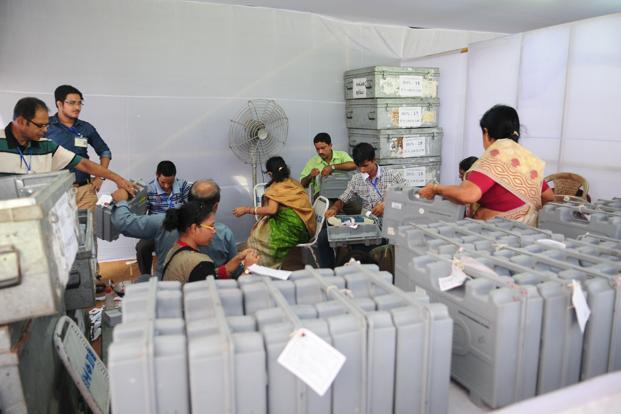
New Delhi: Prime Minister Narendra Modi’s main national opponents lost control of two states on Thursday, diluting their ability to thwart legislation that’s key to his reform agenda.
The once-mighty Congress lost to the Bharatiya Janata Party (BJP) in Assam, ending its 15-year rule in the northeastern state. The Gandhi dynasty’s political organization also dropped Kerala and was only ahead in Puducherry.
The results of the assembly elections in Assam, West Bengal, Kerala, Tamil Nadu and Puducherry were as good as Modi could hope for: his party only had a real shot of winning in Assam, reflecting its struggles to expand outside of Hindi-speaking areas.
Two non-aligned regional power brokers—Trinamool Congress’s (TMC) Mamata Banerjee in West Bengal and AIADMK’s J. Jayalalithaa in Tamil Nadu—were both poised to hold on to power.
Still, the Congress’s losses are good for Modi: they will reduce its ability to block his reform measures in the upper house of parliament, where members are determined by state election results. While the body’s composition won’t change immediately because current members need to serve out fixed terms, the long-term trend favours Modi.
After Thursday’s results, the Congress will control outright just six of India’s 29 states, down from 15 in 2013. Modi’s party would hold power in 10 states, with regional parties and unwieldy coalitions leading the rest.
‘Losing its relevance’
Congress is “losing its relevance” with the losses in Assam and Kerala, said U.R. Bhat, director at Dalton Capital Advisors India Pvt. Ltd, a unit of the UK-based Dalton Strategic Partnership Llp. The BJP has a good working relationship with regional leaders and will seek to woo them to isolate Congress to pass the goods and services tax (GST) and other reforms.
West Bengal’s Banerjee, whose party has won or is leading in 215 of 294 seats, is one of the regional leaders with a swing vote on economic reforms. On Thursday, she reiterated support for the GST even though her party, which is backed by one of India’s largest Muslim populations, has accused Modi’s Hindu nationalist BJP of policies that stoke social strife.
“We have differences in ideology with the BJP which is why we cannot be with them,” Banerjee said at a briefing in Kolkata. “We will support the GST and anything that benefits people.”
Positive sentiment
For more than a year, the upper house—known as the Rajya Sabha—has blocked passage of a national sales tax, which aims to unify more than a dozen levies that hinder trade across state lines. Modi has been more successful with other measures, including an overhaul of bankruptcy laws that passed this month.
The BJP was ahead in 64 of 126 assembly seats in Assam, according to the Election Commission of India. The majority would be the BJP’s first-ever victory in the region.
The Congress has run India for about 80% of the time since independence in 1947. It’s now led by Sonia Gandhi and her son Rahul Gandhi—the son, grandson and great grandson of Indian prime ministers.
The election results impacted the share prices of two Chennai-based television stations. Sun TV Network Ltd, which is linked to the party losing in Tamil Nadu, fell 11% in its biggest tumble since August. By contrast, Raj Television Network Ltd. surged 21%, the most on record, on speculation that it would benefit from more market share.
The broader Sensex Index fell 1.2% as stocks around the globe dropped on concern that the US Federal Reserve would raise interest rates in June.
“The regional parties are the key parties in these elections,” Jagannadham Thunuguntla, head of fundamental research at Karvy Stock Broking Ltd, said by phone from Hyderabad. “The BJP winning in Assam is positive from a sentiment point of view for the markets, but not from a numbers point of view in the Rajya Sabha.”